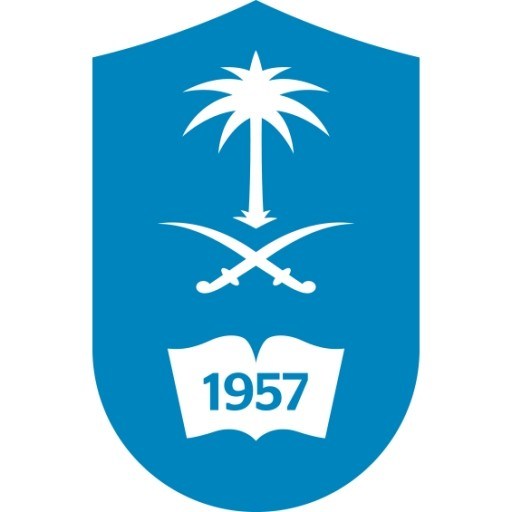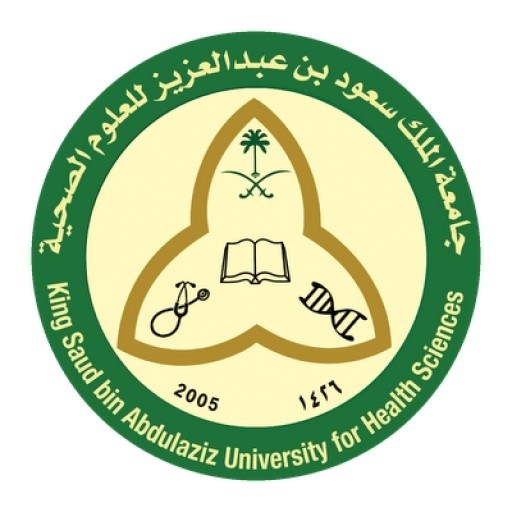Photos of university / #king_saud_university
The Mathematics (Thesis and Courses Option) program at King Saud University offers a comprehensive curriculum designed to develop advanced mathematical skills and theoretical knowledge essential for academic, research, and professional pursuits. This program caters to students who seek to deepen their understanding of core mathematical principles and their applications across various scientific and engineering disciplines. Through a combination of coursework and research, students are equipped to analyze complex problems, develop innovative solutions, and contribute to advancements in mathematical sciences.
The curriculum emphasizes foundational topics such as algebra, calculus, differential equations, mathematical analysis, and geometry, while also exploring specialized areas including discrete mathematics, probability theory, statistical methods, operations research, and mathematical modeling. Students have the opportunity to select elective courses tailored to their interests, allowing for a customized educational experience that aligns with their career goals. The coursework is designed to foster rigorous analytical thinking, problem-solving abilities, and quantitative reasoning, ensuring graduates are well-prepared for roles in academia, industry, or government sectors.
A distinctive feature of the program is the thesis component, which encourages students to engage in original research under the supervision of experienced faculty members. This research-based element not only enhances critical thinking and independent investigation skills but also contributes to ongoing scholarly discussions within the mathematical community. Students are supported through seminars, workshops, and collaborative projects, facilitating an environment of intellectual growth and innovation.
The program aims to produce graduates who possess a solid theoretical foundation coupled with practical research experience. Graduates may pursue careers in academia as university faculty members or researchers, or apply their expertise in sectors such as technology, finance, data analysis, and applied sciences. The interdisciplinary nature of mathematics as a foundational science makes this program an excellent stepping stone for those interested in careers that require strong quantitative and analytical capabilities.
Overall, the Mathematics (Thesis and Courses Option) program at King Saud University provides a rigorous and enriching educational journey for aspiring mathematicians, researchers, and professionals. It fosters academic excellence, promotes critical inquiry, and prepares students to contribute meaningfully to scientific and technological advancements in a variety of fields.
Track A: Algebra
- Group Theory (I)
- Linear Algebra
- Galois Theory
- Ring Theory (I)
- Representation Theory of Finite Groups
- Homological Algebra
- Commutative Algebra
- Fuzzy Algebraic Systems
- Finite Fields
- Selected Topics in Algebra
- Introduction to Discrete Structures
- Graph Theory
- Ordered Sets
- Numerical Linear Algebra
- Mathematical Programming
- Singular Homology and Cohomology Theory
- Differentiable Manifolds
- Functional Analysis (I)
Track B: Geometry and Topology
- Singular Homology and Cohomology Theory
- Vector Bundles and K Theory
- Differentiable Manifolds
- Geometry of Manifolds
- Geometry of Submanifolds
- Selected Topics in Geometry and Topology
- Partial Differential Equations (I)
- Homological Algebra
- Commutative Algebra
- Functional Analysis (I)
- Complex Analysis
Track C: Analysis
- Functional Analysis (I)
- Functional Analysis (II)
- Topological Vector Spaces
- Measure Theory (II)
- Complex Analysis
- Potential Theory
- Summability Theory
- Holomorphy and Calculus in Normed Spaces
- Selected Topics in Analysis
- Ordinary Differential Equations
- Partial Differential Equations (I)
- Partial Differential Equations (II)
- Linear Algebra
- Commutative Algebra
- Approximation Theory
- Differentiable Manifolds
Track D: Computational and Discrete Mathematics
- Introduction to Discrete Structures
- Graph Theory
- Ordered Sets
- Mathematical Logic
- Formal Languages and Complexity
- Combinatorial Design
- Coding Theory
- Cryptography
- Selected Topics in Discrete Mathematics
- Numerical Analysis
- Numerical Linear Algebra
- Numerical Solutions Of Ordinary Differential Equations
- Numerical Solution of Integral Equations
- Approximation Theory
- Mathematical Programming
- Non-linear Optimization Techniques
- Selected Topics in Numerical Analysis
- Group Theory (I)
- Linear Algebra
- Finite Fields
- Functional Analysis (I)
Track E: Applied Mathematics
- Quantum Mechanics I
- Fluid Dynamics
- Perturbation Theory
- Calculus of Variations
- Selected Topics in Mathematical Modeling
- Selected Topics in Applied Mathematics
- Ordinary Differential Equations
- Applied Partial Differential Equations
- Partial Differential Equations (I)
- Partial Differential Equations (II)
- Introduction to Discrete Structures
- Graph Theory
- Group Theory (I)
- Linear Algebra
- Numerical Analysis
- Mathematical Programming
- Differentiable Manifolds
- Functional Analysis (I)
- Functional Analysis (II)
- Potential Theory
Requirements
- The applicant must hold a B.Sc. degree (Science or Education) in Mathematics with a GPA of at least 3.75 out of 5.
- The applicant must score at least 70% marks in the aptitude test for graduates organized by the National Center for Assessment in Higher Education.
- The applicant must pass the written admission test arranged by the Department.
- Obtain a minimum score on TOEFL or IELTS. Internet-based TOEFL 61, Computer-based TOEFL 173, Paper-based TOEFL 500, IELTS 6
Funding for the Mathematics (Thesis and Courses Option) program at King Saud University is primarily provided through various sources to support students throughout their studies. The university allocates funds for graduate programs from its general budget, which includes government allocations and additional income generated from research activities and tuition fees. Saudi Arabian students pursuing this program may benefit from government-funded scholarships and financial aid packages designed to reduce the financial burden of postgraduate education. These scholarships often cover tuition fees, accommodation, and sometimes provide stipends for living expenses. International students, depending on their country of origin, may have access to limited funding opportunities through bilateral agreements or university-sponsored scholarships. The university also encourages students to seek external funding opportunities, including research grants and fellowships from national agencies, private sector partners, or international organizations interested in mathematical research. Some students may also be able to secure assistantships or teaching positions within the university, which provide additional financial support in exchange for teaching or research assistance. The university promotes a supportive financial environment to enable students to focus on their academic and research activities without undue financial constraints. Furthermore, the institution continuously explores new funding avenues to enhance research capabilities and graduate training quality. Overall, financial support mechanisms at King Saud University aim to ensure that qualified students can pursue advanced studies in mathematics without significant financial barriers, thereby fostering a vibrant research community and encouraging academic excellence.
The Master of Science in Mathematics at King Saud University offers a comprehensive curriculum designed to deepen students' understanding of mathematical theories and their applications. The program provides two study options: with thesis and without thesis. The thesis option allows students to engage in advanced research, contributing original ideas to fields such as pure mathematics, applied mathematics, and computational mathematics. This pathway is suitable for students aiming to pursue doctoral studies or careers in research and academia. The non-thesis option focuses more on coursework, providing a solid foundation in core mathematical disciplines, which prepares students for careers in industry, education, or further professional development.
The program's curriculum is carefully structured to cover fundamental areas such as algebra, analysis, geometry, probability, and statistics, alongside specialized courses tailored to current trends and research frontiers. Students have opportunities to participate in seminars, workshops, and collaborative projects, enhancing their practical skills and research capabilities. Faculty members involved in the program are experienced researchers and educators, ensuring high-quality instruction and mentorship.
Admissions requirements typically include a relevant bachelor's degree with a strong academic record, proficiency in English, and relevant coursework or experience in mathematics. The duration of the program usually spans two years for full-time students, with flexible schedules to accommodate working professionals. The thesis option involves the preparation and defense of a research thesis, contributing novel insights to mathematical sciences, while the non-thesis pathway requires the successful completion of comprehensive examinations and coursework.
Graduates of the program are well-equipped to pursue doctoral studies, secure positions in government and private industry, or contribute to academia through teaching and research. The program emphasizes developing critical thinking, problem-solving skills, and research competence to meet local and international workforce demands. King Saud University maintains strong links with academic and professional organizations worldwide, providing students with opportunities for networking, conferences, and collaborative research projects.
In summary, the Master’s program in Mathematics at King Saud University is designed to offer rigorous academic training, research opportunities, and practical skills, preparing graduates for diverse career paths or advanced academic pursuits. The integration of research, coursework, and practical experiences ensures that students receive a well-rounded education suited to the evolving demands of the mathematical sciences.

